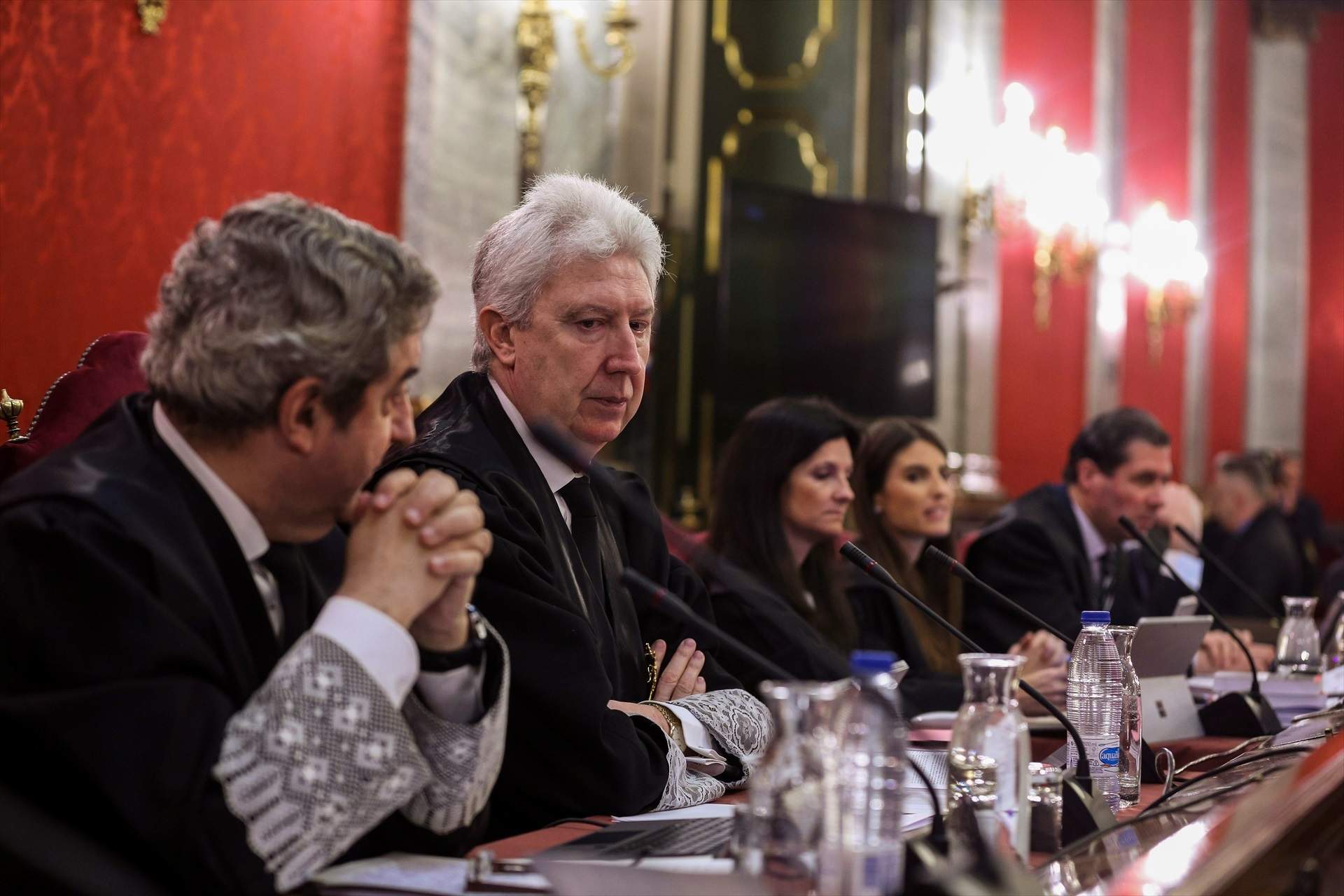The prognoses made over several days have been confirmed this Friday and Spain's Supreme Court prosecutors are formalising their divorce with their superior, the Spanish prosecutor general. Álvaro García Ortiz has directly ordered them to argue before judges Pablo Llarena and Manuel Marchena that all crimes attributed to the leaders of the Catalan independence process, including misuse of funds, must be amnestied, but Fidel Cadena, Javier Zaragoza, Consuelo Madrigal and Jaime Moreno maintain their frontal rejection and reiterate that misuse of public funds does not fall within the scope of the amnesty law. This leads Spain's public prosecution service to the outcome foreseen for days and anticipated yesterday by the prosecutor himself: a Board of Prosecutors meeting, which will have to discuss the application of the amnesty has been officially called, for Tuesday 18th June at 9:30am. However, García Ortiz, in favour of a total amnesty for Catalan president Carles Puigdemont, former vice president Oriol Junqueras and former ministers Toni Comín, Lluís Puig, Jordi Turull, Raül Romeva and Dolors Bassa, will always have the last word. Once he has ratified his position, and the prosecutors refuse to give in, he will have to take on the case himself or refer it to another prosecutor who will apply his guidelines.
In a brief two-page text signed by Javier Zaragoza, the four Supreme Court prosecutors reprimand García Ortiz, asserting that the arguments he makes to force them to position themselves in favour of an "unconditional application of the amnesty" are "manifestly insufficient to legitimize the feasibility and compliance with legality of the order given" and they say that his order is "inadmissable and contrary to the law because it does not conform to the most elementary criteria of legal logic and criminal legality required in interpretation and application of the laws". For this reason, they invoke the application of Article 27 of the Statute of the Public Prosecutor, a step which now leads to the meeting of the senior Board of Prosecutors.
The Board of Prosecutors is presided over by the prosecutor general, includes the deputy prosecutor of the Supreme Court, María de los Ángeles Sánchez Conde, with the chief prosecutor of the technical secretariat, Ana García León, acting as secretary. In total, there are 38 senior prosecutors called to attend a meeting that is expected to be long, with all those attending required to present their legal argument, sources have told ElNacional.cat.
"An undoubted patrimonial benefit"
The conflict among Spanish public prosecutors goes back to the very day that Congress gave the final green light to the amnesty law, when all the alarms sounded: the Supreme Court prosecutors made it known that they were opposed to granting an amnesty for misuse of public funds offences. Just this Wednesday, they ratified their absolute rejection of the inclusion of these public spending offences in the law, arguing that pro-independence leaders Puigdemont, Comín, Puig, Junqueras, Turull, Romeva and Bassa "stole public funds for themselves, in the form of millions of euros", something which "implies personal enrichment, since they were able to dispose of public funds for their illicit purposes”. The prosecutors argued that "the misuse of public funds resulted in a patrimonial benefit for the authors", since the funds were allocated to "the preparation, development and realization of their illegal and unconstitutional project for the disintegration of Spain, which produced an undoubted patrimonial benefit for them".
In addition, they argue that the misuse of public funds to "finance a secessionist process" within a state that is part of the European Union poses a "risk of a territorial fracture of the EU and the consequent decrease in income and funds that are part of its budget" and, consequently, "has a negative impact on the financial interests of the Union". And they recalled that misuse of funds is one of the crimes that the European directive on the fight against fraud includes among the crimes that affect the financial interests of the Union.
Prosecutor general supports tje amnestying of Puigdemont and Junqueras
The opinion of the Supreme Court prosecutors collides with that of the prosecutor general, who maintains that all crimes linked to the October 1st referendum "are included" in the scope of the amnesty and that, therefore, all the leaders of the process must be amnestied. In his writing, to which ElNacional.cat has had access, Álvaro García Ortiz considers that the Supreme prosecutors' interpretation "contradicts the will of the legislator and the literal tenor of the articles" and tells them that their arguments "are insufficient to put in doubt the possibility of understanding the crimes of misuse of funds as not able to be amnestied".
The prosecutor general, who always has the last word, maintains that the prosecutors "confuse" the intention of profiting financially required by the crime of misuse of funds with "the personal enrichment of a patrimonial nature" which would mean, under the amnesty law, that the offences would not qualify for an amnesty. "The patrimonial damage to the administration, as a result of the crime of misuse of funds, is not comparable to personal enrichment of a patrimonial nature", he argues. And he adds that the facts of the case "do not directly affect" the financial interests of the EU.

